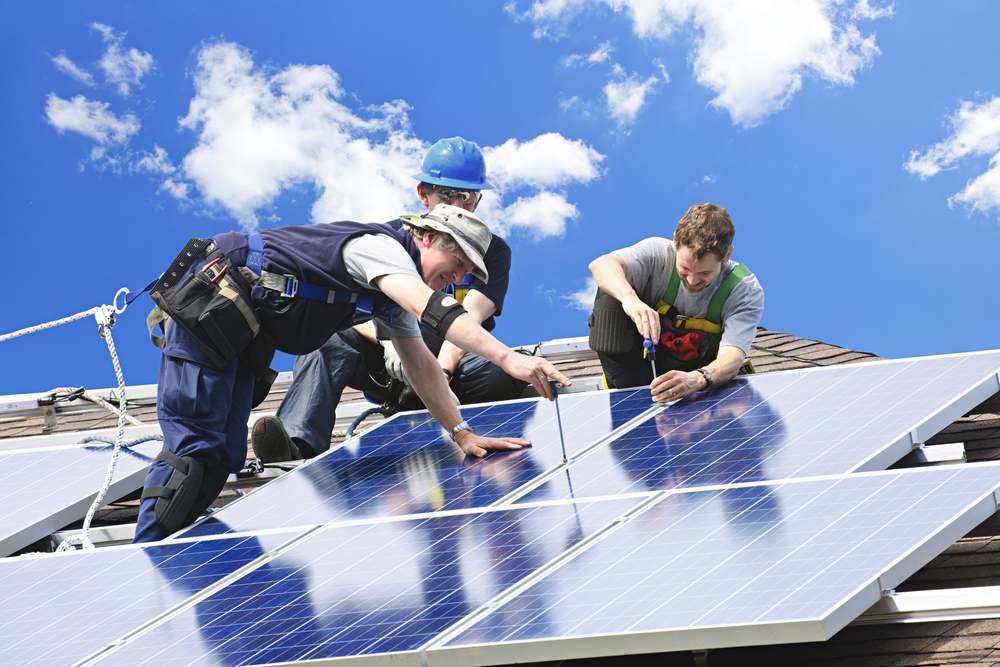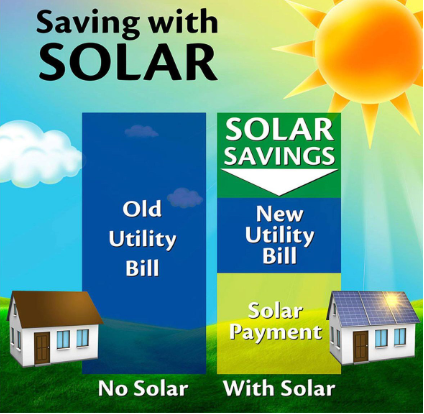If you are thinking about installing solar panels on your property, you might wonder which financing option is best for you. This blog post will help break down the pros and cons of each option so that you can make an educated decision. At first glance, it may seem like leasing a system would be the best route because there are no initial costs to purchase or install one. But when all factors are considered, owning a solar system through a loan has its benefits.
What is a solar loan?
A solar loan is a financing option in which you borrow money from a lender to pay for your solar system. The loan is then paid back over time with interest. This option can be appealing because you own the system outright and typically have a lower interest rate than you would with a lease.
What is a solar lease?
A solar lease is an agreement with a third-party company that you will purchase the power generated by your system. The leasing company owns and maintains the panels but typically doesn’t charge any fees to use their equipment; instead, they make back profits through energy bill savings.

Solar lease Vs. Solar Loan; which is better?
Both benefits and drawbacks are associated with owning or leasing a solar panel system, including initial costs, maintenance issues, warranties, and other factors. It’s essential to do your research before making your final decision about financing options. Here are just a few tips to help you make the final decision;
Initial cost.
One of the biggest factors to consider when deciding whether you should lease or purchase your solar panels is the initial cost. If you choose a loan, there will be an upfront fee for the system to work correctly. With this option, though, some companies may require higher deposits ranging between $500–$1500 but usually average around $1000.
On the other hand, with a solar lease, there are no out-of-pocket expenses needed, and you only pay monthly fees. The average cost to lease solar panels ranges between $50-$250 per month. While some companies require a down payment, many allow you to get started on a lease program with a $0-down agreement.
Maintenance issues.
When you own your solar system, you will be responsible for all maintenance costs. Since there is no third-party company to maintain and repair your panels, any issues that arise can be costly. On the other hand, leasing a system doesn’t require you to worry about maintaining it. Some companies offer a full warranty on their equipment, so they fully cover them if anything goes wrong with installing components.
Warranty coverage.
When deciding between buying or leasing a solar panel system, one crucial factor to consider is what kind of warranty each option offers along with terms and conditions which differ from company to company, so make sure you do the proper research beforehand. If something were to go wrong down the road, this could present an issue.
Long-term savings.
When you own your solar system, the savings you gain from it are considered tax-free under federal law. This means that there is no limit on how much energy you can consume and still receive a reimbursement for each kilowatt-hour generated by the panels themselves. If leasing a system, though, some companies will offer monthly statements, so you know exactly what kind of money-saving benefits they provide. Still, similar to warranties, these vary depending on which company provides them.
Depending on where in Phoenix or another location with high electricity costs, such as Nevada, purchasing or leasing a solar panel system may depend largely upon individual circumstances. This may include budget constraints and personal preferences when determining long-term cost savings.
Tax credits and incentives.
Another benefit of purchasing a solar system is that federal tax credits are available to you, saving you money on your taxes owed or even resulting in a refund if the amount exceeds what you owe. On the other hand, leasing equipment doesn’t offer any such benefits, so if this is something important to consider, then it’s worth keeping in mind.
With all things considered, both options have their pros and cons. Still, ultimately it comes down to personal preference when deciding between leasing vs. buying solar panels for your home or business property. For example, some people may want more control over how they
power their property. In contrast, others may prefer the ease of use without worrying about maintenance issues after the installation has been completed.
Go solar with Advosy Energy.
At Advosy Energy, we provide free solar consultations to help you decide if going solar is right for your home or business. We provide the best high-efficiency, American-made panels, and inverters that will give you peace of mind while saving money on your monthly utility bills. To learn more about our services, call us today for a free quote at 602-584-8294. Visit our website for more information https://advosyenergy.com/contact-us/

